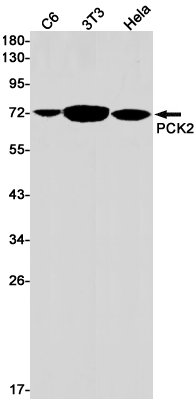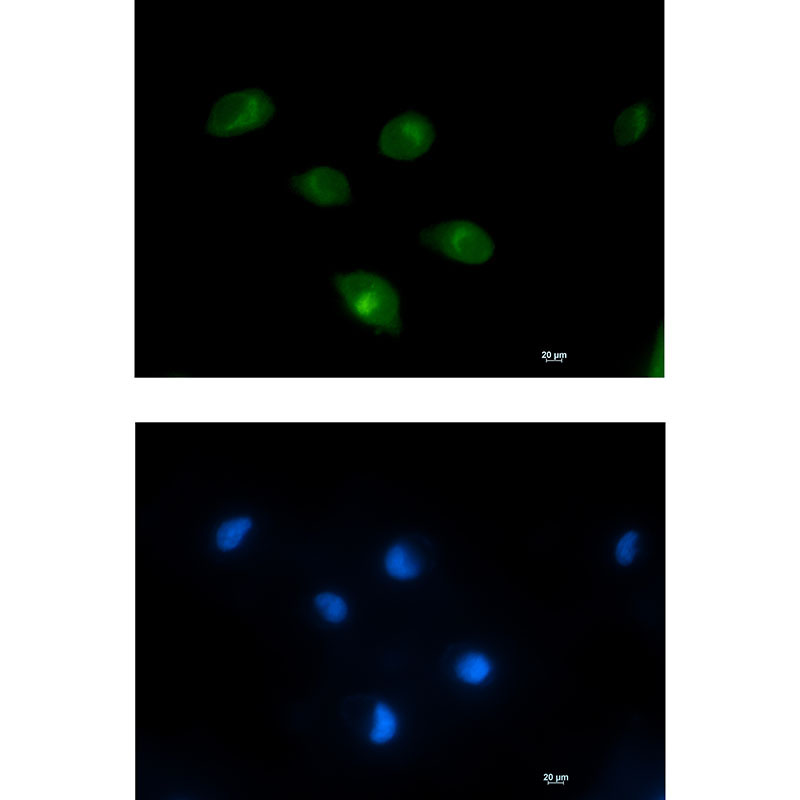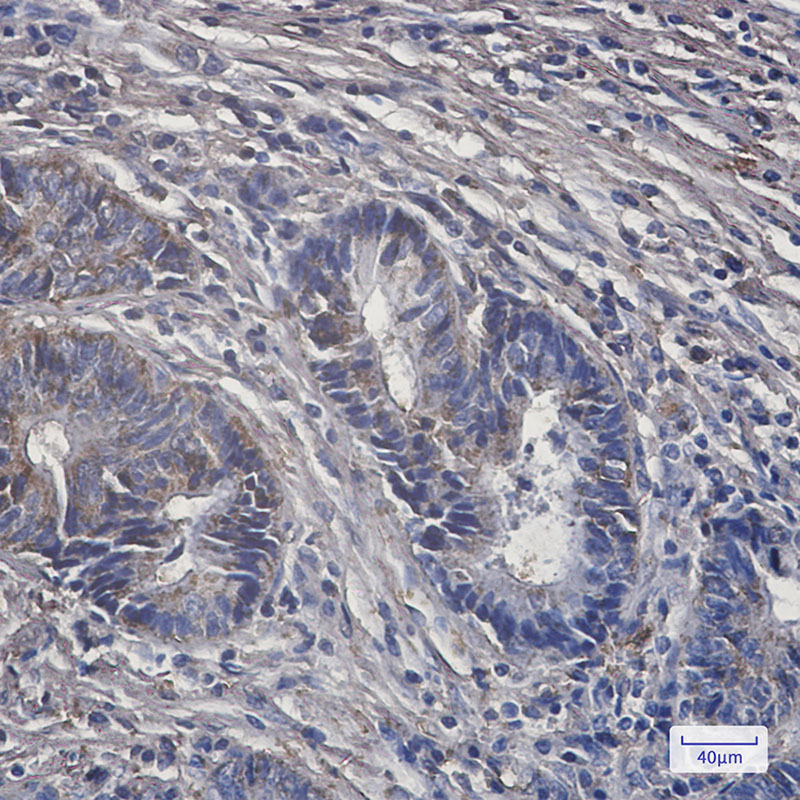


| WB | 1/500-1/1000 | Human,Mouse,Rat |
| IF | 咨询技术 | Human,Mouse,Rat |
| IHC | 1/50-1/100 | Human,Mouse,Rat |
| ICC | 1/50-1/200 | Human,Mouse,Rat |
| FCM | 咨询技术 | Human,Mouse,Rat |
| Elisa | 咨询技术 | Human,Mouse,Rat |
| Aliases | PCK2; PEPCK2; Phosphoenolpyruvate carboxykinase [GTP]; mitochondrial; PEPCK-M; Phosphoenolpyruvate carboxylase |
| Entrez GeneID | 5106 |
| WB Predicted band size | Calculated MW: 71 kDa; Observed MW: 71 kDa |
| Host/Isotype | Rabbit IgG |
| Antibody Type | Primary antibody |
| Storage | Store at 4°C short term. Aliquot and store at -20°C long term. Avoid freeze/thaw cycles. |
| Species Reactivity | Human,Mouse,Rat |
| Immunogen | A synthetic peptide of human PCK2 |
| Formulation | Purified antibody in TBS with 0.05% sodium azide,0.05%BSA and 50% glycerol. |
+ +
以下是3-4条关于PCK2抗体的参考文献示例(内容为模拟概括,仅供参考):
---
1. **文献名称**:*Mitochondrial phosphoenolpyruvate carboxykinase (PCK2) regulates metabolic adaptation in hepatocellular carcinoma*
**作者**:Yang, J. et al.
**摘要**:本研究通过Western blot和免疫荧光技术,利用PCK2特异性抗体揭示了PCK2在肝癌细胞线粒体中的高表达,并证明其通过调控糖异生和能量代谢促进肿瘤生长。
2. **文献名称**:*PCK2-mediated mitochondrial metabolism supports colorectal cancer progression*
**作者**:Zhang, L. et al.
**摘要**:作者使用PCK2抗体进行免疫组化分析,发现结直肠癌组织中PCK2表达升高,且与患者预后不良相关。研究提示PCK2通过维持线粒体氧化代谢促进肿瘤侵袭性。
3. **文献名称**:*Targeting PCK2 improves sensitivity to glutamine deprivation in cancer cells*
**作者**:Mendez-Lucas, A. et al.
**摘要**:该研究利用PCK2抗体验证基因敲除效果,发现抑制PCK2可增强癌细胞对谷氨酰胺缺乏的敏感性,为靶向代谢通路治疗癌症提供了依据。
4. **文献名称**:*PCK2 modulates oxidative stress resistance via mitochondrial NADPH generation*
**作者**:Liu, X. et al.
**摘要**:通过免疫印迹和流式细胞术,研究者证明PCK2通过生成NADPH帮助细胞抵抗氧化应激,其抗体的应用为解析PCK2的抗氧化机制提供了关键实验支持。
---
**注**:以上内容为模拟生成,实际文献需通过学术数据库(如PubMed、Web of Science)检索确认。
PCK2 (phosphoenolpyruvate carboxykinase 2) is a mitochondrial enzyme critical to gluconeogenesis, catalyzing the conversion of oxaloacetate to phosphoenolpyruvate (PEP), a rate-limiting step in glucose synthesis. Unlike cytosolic PCK1. PCK2 supports energy homeostasis under nutrient-deprived conditions, particularly in non-gluconeogenic tissues. Its expression is regulated by glucocorticoids, insulin, and metabolic stressors, linking it to diabetes, cancer, and metabolic disorders. Dysregulated PCK2 is implicated in tumor growth by fueling biosynthetic pathways in hypoxic environments.
PCK2 antibodies are tools for detecting and quantifying PCK2 protein in research. Developed using immunogens like recombinant proteins or synthetic peptides, these antibodies enable applications such as Western blotting (WB), immunohistochemistry (IHC), and immunofluorescence (IF). Specificity varies; some antibodies distinguish PCK2 from PCK1. while others may cross-react due to sequence homology. Validation across species (human, mouse, rat) and sample types (tissues, cell lysates) is essential.
Research applications include studying metabolic reprogramming in cancer, insulin resistance mechanisms, and mitochondrial dysfunction. Commercially available monoclonal and polyclonal PCK2 antibodies differ in clonality, host species, and conjugation formats. Proper controls (e.g., knockout cells) are recommended to confirm target specificity in experimental settings.
×